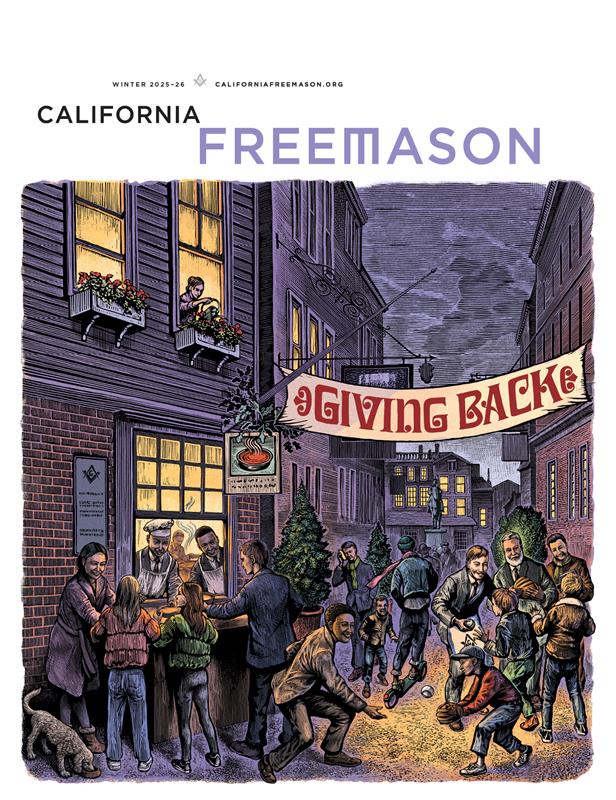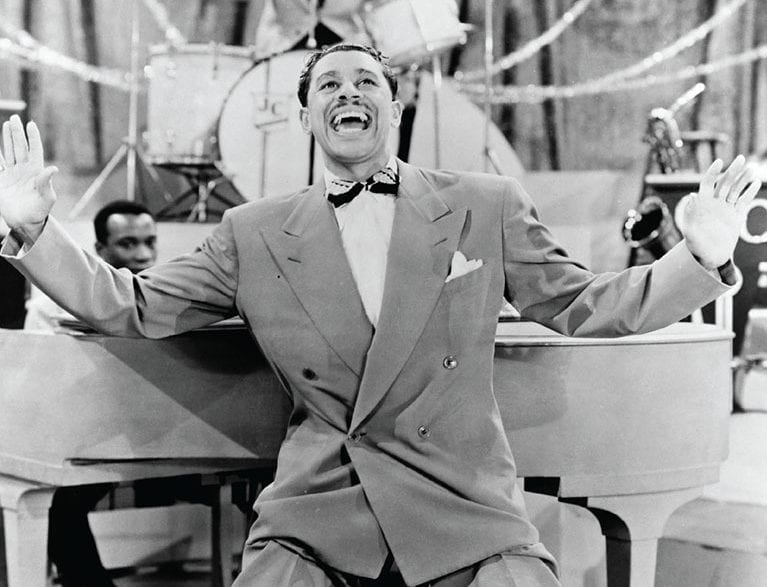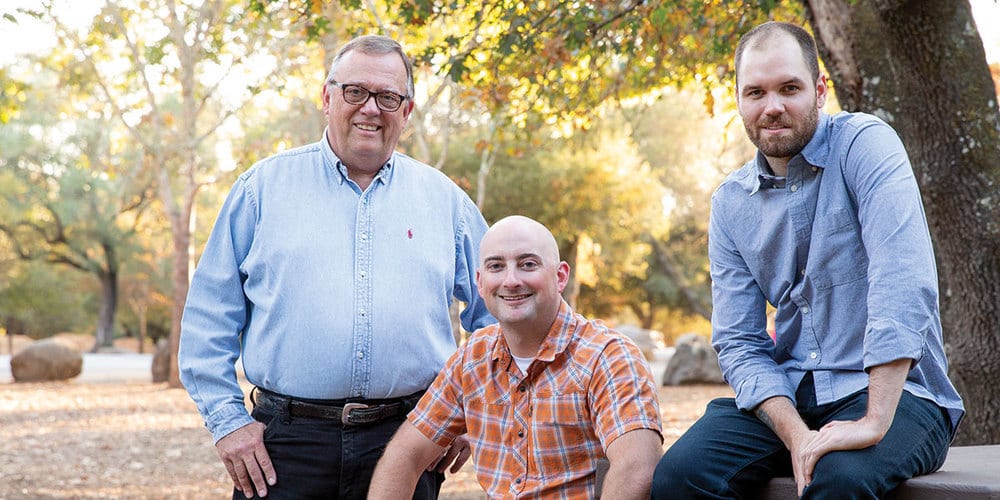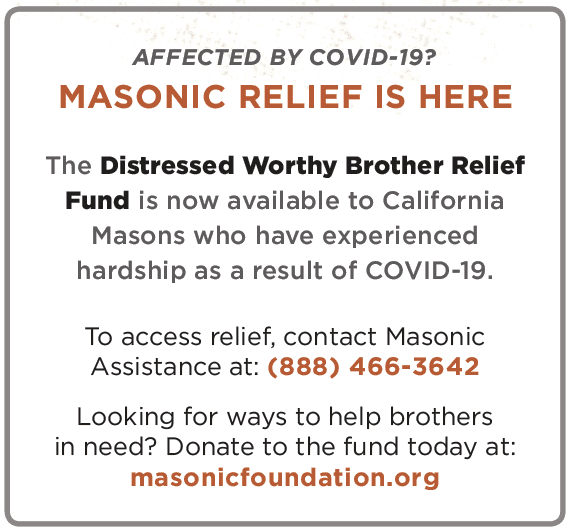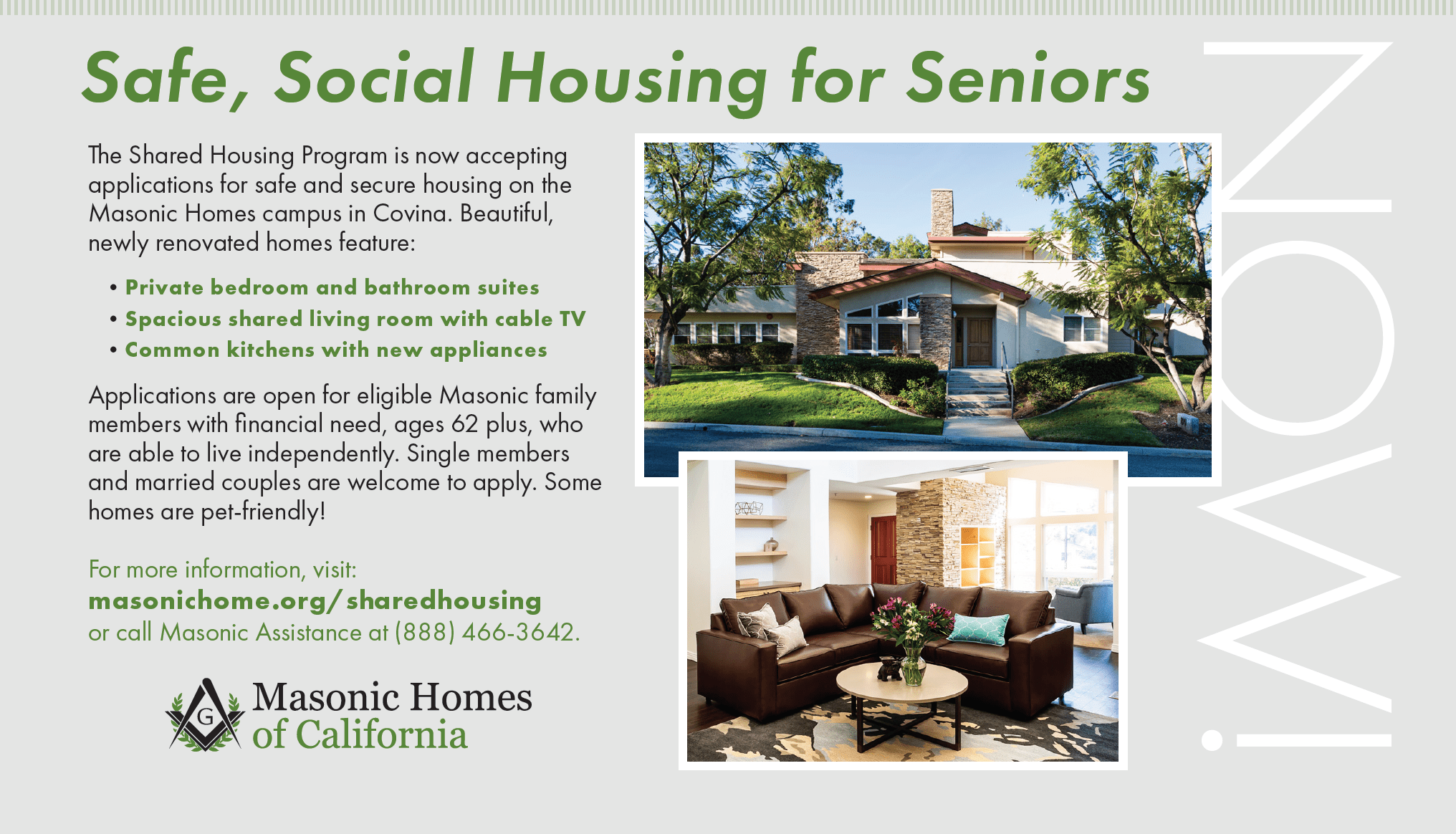

The Relief Issue
THE HELP Line
Long before covid-19, an emergency Masonic task force was pressed into heroic action.
By Laura Benys
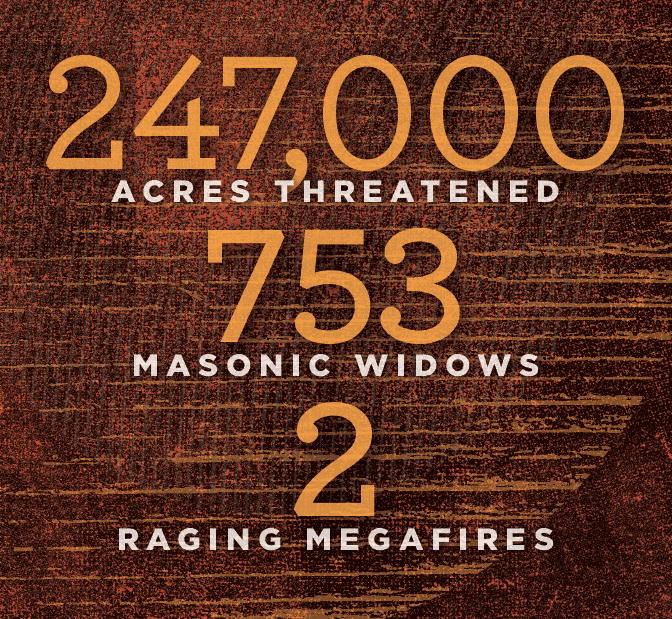
On the day in 2018 that the worst fire in a century of United States history broke out, a second fire erupted almost 500 miles away.
At one end of the state, a fire that would go on to burn for two weeks, claim 85 lives, and ultimately scar an area the size of Chicago. At the other, a blaze propelled by the Santa Ana winds was pushing across the Ventura Freeway into Malibu. At the Masonic Outreach Services (MOS) headquarters in Covina, there was a looming sense of dread. “I remember California being on fire like never before,” says Helen D. Ramirez, a data analyst there. “There was no news of containment. And the winds were picking up.”
Most of the world could do little but watch in horror, including, at least at first, Ramirez. Then she received an urgent message from Sabrina Montes, executive director of Masonic Outreach Services. Below a list of immediate instructions was a simple message. “Call the widows,” Montes wrote. “Make sure they’re OK.”
In any aid or relief organization, there are those on the front lines who work directly with people receiving assistance, and then there are team members operating behind the scenes, making that work possible. In times of crisis, those distinctions are often cast aside, and the call for all hands on deck gets put to the test. For Masonic Outreach Services, November 2018 was one of those times. When Ramirez received Montes’s email, she immediately reached out to her colleagues, both in the Covina office and in Union City, where administrative staff from MOS and its parent organization, the Masonic Homes of California, are located. Any-one and everyone with access to a phone needed to drop everything and start dialing, she explained.
“CALL THE WIDOWS. MAKE SURE THEY’RE OK."
Within a few hours, a special task force of 12 had formed to flood the fire zones with calls to elderly members and widows. The team included staff of all stripes—executives, administrative assistants, interns, a social-services assistant, an office man-ager, and Ramirez herself, whose usual role as a data analyst deals with numbers, not people.
The task force divvied up the list of widows living in and around Butte County, and started call-ing. They asked if widows needed help accessing emergency-disaster resources, formulating an evacuation plan, or contacting family members. They provided Masonic Assistance’s phone number and made referrals to other organizations. They didn’t stop until they’d called every Masonic widow. From 9:30 a.m. to 2:21 p.m., the task force made 619 phone calls.
“On that day, we showed how quickly we can come together as a team, even across different depart-ments, in different parts of the state,” Ramirez says. “It was amazing. It was truly ‘one team, one dream.’”
The work wasn’t over. Two days later, the task force reassembled, as the Woolsey Fire kept spreading and threatening parts of Los Angeles and Ventura counties, to reach out to Masonic widows there. All told, between the Camp and Woolsey fires, the group made 753 phone calls, carefully noting every out-come. Between Masonic Assistance services and local resources, the task force ensured everyone got the support they needed. “It felt really good to hear from the widows that they were safe and that they appreciated us calling to check on them,” says Ranshu Malini, who normally serves as executive assistant with the Masonic Homes but that week was pressed into emergency outreach.
It’s a modern chapter in a story as old as the fraternity. In every crisis or natural disaster since the cholera epidemic of 1850 (see page 22), the fraternity has rallied—individually, as lodges, and through Masonic Assistance—to be there for its members’ families. “California Masonry has a long history of providing relief during times of emergency and disasters,” Montes says. “Today it’s no different.”
For Ramirez and others, their experience o“As a data analyst, I’m one of the few staff in my department who doesn’t usually work with clients directly,” she says. “Being part of the outreach made me proud to work here. To be in a position to help gave me a sense of purpose.”
Mike McComas, an administrative assistant for the Masonic Homes, agrees. “Helping others when they’re unable to help themselves is what drew me to join the Masonic family in the first place.” n the task force made this personal.
We’re Here to Help
RELIEF FOR CALIFORNIA MASONS AND THEIR FAMILIES
- Information and referrals
- Senior communities in Covina and Union City
- Statewide Masonic Outreach Services for members of all ages and their families
- Transitions short-term care for neurological and post-surgical rehabilitation (Union City)
- The Masonic Center for Youth and Families in San Francisco and Covina – with telehealth services now available everywhere
- NEW! Shared housing for seniors in Covina
Contact us today to access your member benefits and services:
masonichome.org
(888) 466-3642
mcyaf.org
(877) 488-6293 (San Francisco)
(626) 251-2300 (Covina)
Keep reading by exploring more articles that share common topics.
More from this issue:

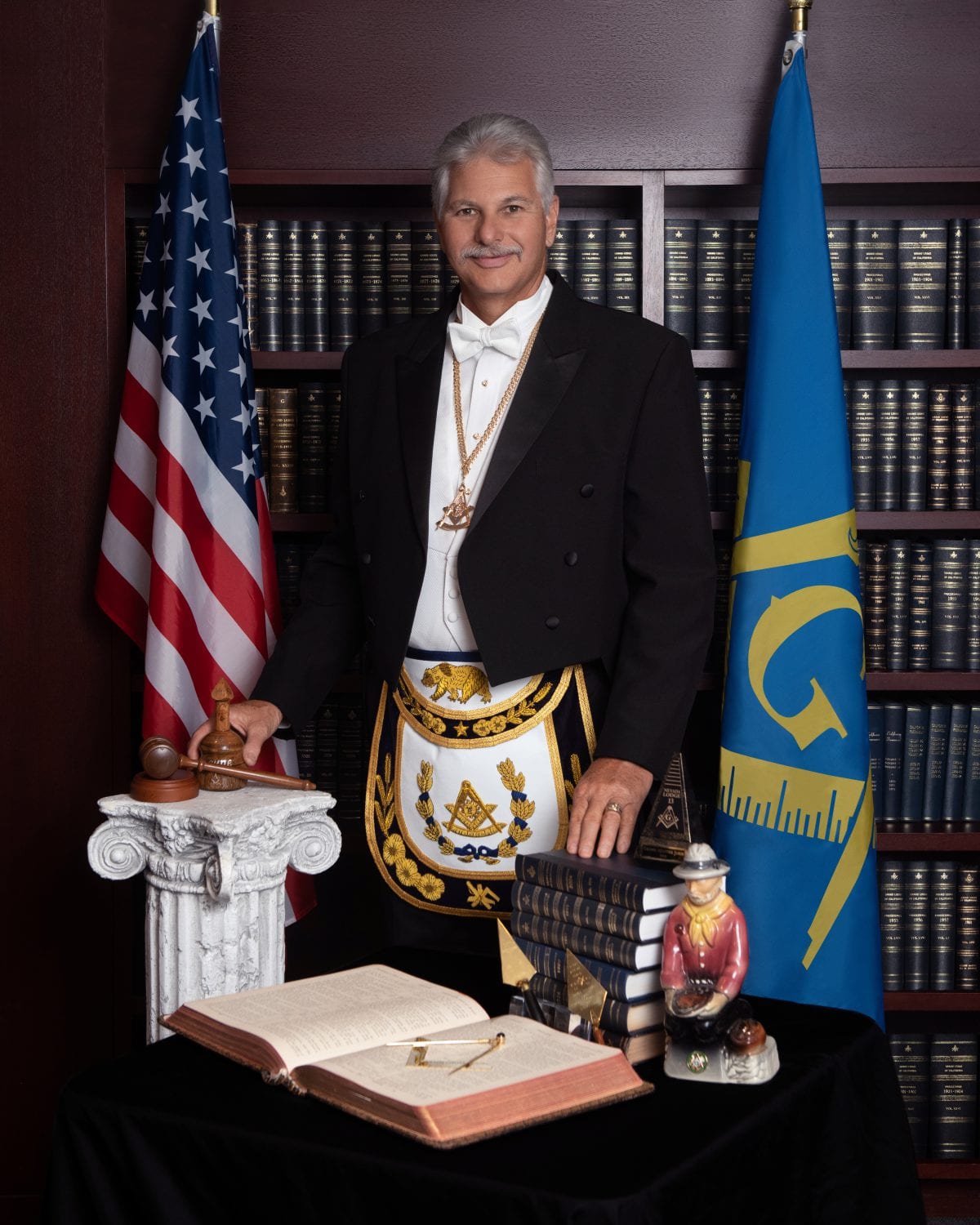
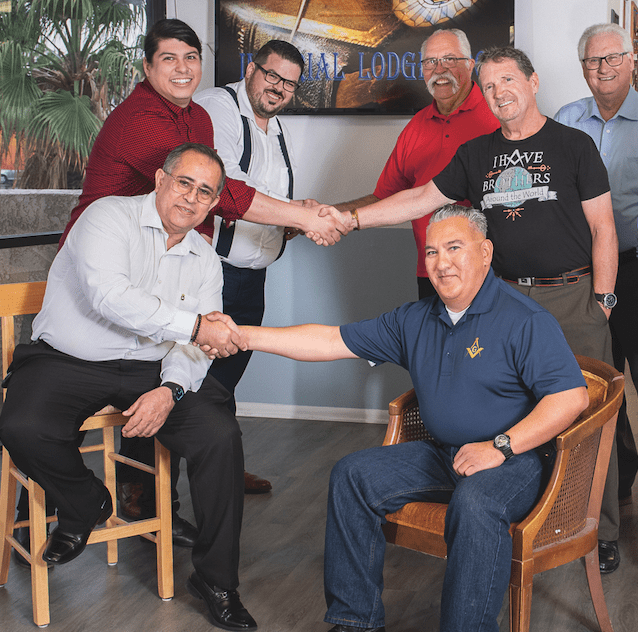
Lodge Profile: The Borderland Lodge
At Imperial Valley Lodge No. 390, Masons are making valuable community connections on both sides of the border; and tracking Masonic first pitch misfires in anticipation of another Masons4Mitts season.
